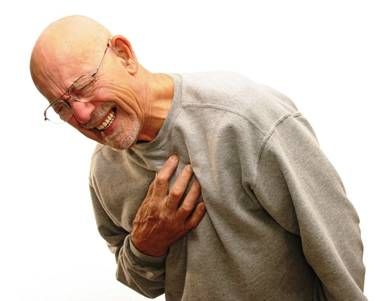Heroes wanted: Will cardiac-arrest alerts come to your town?
 For the video version of this post, click here.
For the video version of this post, click here.
If you suffer an out-of-hospital cardiac arrest, your chance of surviving is only around 10%. But you can improve those odds dramatically if a bystander initiates CPR before EMS arrives. Boosting the rates of bystander-initiated CPR, then, has become a major public health focus. But, typically, the means to increase the rate have been simple: train more people. While laudable, training can only reach a small fraction of the community, and the chance that someone in your immediate vicinity has been adequately trained remains small.
But what if we could expand your immediate vicinity? What if every CPR-trained person within, say, half-a-kilometer, got a text message when an individual may have suffered a cardiac arrest.
This idea, which, Im just gonna say, is totally awesome, is the subject of a paper appearing in the New England Journal of Medicine. Here are the details:
Swedish researchers, led by Leif Svennson, created a system leveraging the power of our modern mobile communications infrastructure. For about a year and a half, in Stockholm, when EMS was called for a patient with suspected cardiac arrest, an electronic system would be activated that A) identified where the patient was, and B) identified if one of around 6000 volunteers were within 0.5km.
Major kudos to the research team for making this a randomized trial. Based on a computer-based coin flip, the nearby-provider would either be alerted or not. You can imagine that there would have been some push-back about that; the system knew there was a trained provider nearby, but, in half the cases, would do absolutely nothing.
But I think this was exactly the right thing to do. These types of interventions, which seem to be all upside, can often have unforeseen consequences. They need to be rigorously studied.
As it turns out, this idea worked. The rate of bystander-initiated CPR was 62% in the intervention group and only 48% in the control group, a dramatic (and statistically significant) difference. Now, the alerts didnt appear to increase survival, but the study was under-powered for that outcome. The pragmatic researcher would argue that a much larger trial is needed.
But I dont have to be pragmatic - this is opinion-based commentary. These are dramatic results that may save lives. I think we can all learn from this system, and hopefully build out these types of targeted response systems more broadly.
I mean, after all, our cell phones are tracking our every move anyway. Might as well get some benefit independent of targeted advertisements and government surveillance.